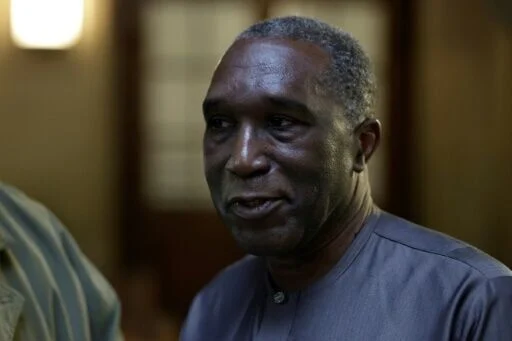A French court was due to deliver its verdict on Wednesday in the trial of a former doctor accused of genocide in Rwanda, with the defendant facing up to 30 years in prison in the latest French trial over the massacre of the African country’s Tutsi population by the Hutu majority nearly three decades ago.
Eugene Rwamucyo, 65, is accused of assisting Rwanda’s then-authorities in spreading anti-Tutsi propaganda and of engaging in mass murder by attempting to destroy evidence of the genocide.
Rwamucyo’s trial is the eighth in France related to the 1994 genocide, during which an estimated 800,000 people – mainly ethnic Tutsis – were killed.

The former doctor, who practised medicine in France and Belgium after leaving Rwanda, is charged with genocide, complicity in genocide, crimes against humanity, complicity in crimes against humanity, and conspiring to prepare those crimes.
Prosecutors have demanded a 30-year prison sentence, but in his final statement before the verdict, Rwamucyo, who is not currently in custody, maintained his innocence.
“I assure you that I did not order the killing of survivors or allow survivors to be killed,” Rwamucyo said.
“I understand the suffering of those who are still looking for their loved ones… but I cannot help them,” he added.
– ‘One can kill with words’ –
Prosecuting lawyer Nicolas Peron argued that Rwamucyo should be acquitted of crimes against humanity, saying there was no evidence that he personally carried out summary executions or acts of torture.
However, in his closing statement, he asserted that the accused should not “escape his responsibilities,” remarking that “one can kill with words.”
The verdict was expected later in the day.
According to prosecutors, Rwamucyo, who was raised in a Hutu family, was approached by anti-Tutsi militants in the late 1980s after returning from studies in Russia, and is accused of subsequently spreading anti-Tutsi propaganda.
While teaching at university, he allegedly participated in the execution of injured patients and assisted in burying them in mass graves “in a final attempt to destroy evidence of genocide,” as noted in witness testimonies.
His lawyers argue that Rwamucyo denies all wrongdoing, claiming the accusations stem from his opposition to the current Rwandan government.
They contend his involvement in burying bodies in mass graves was motivated by a desire to prevent a “health crisis” that would have arisen had the bodies been left exposed.
Following an international arrest warrant issued by Rwanda, Rwamucyo was arrested in May 2010 by French police after a tip-off from his colleagues at the Maubeuge hospital in northern France, where he was employed at the time.
“He was openly anti-Tutsi and publicly expressed his support for the genocidal government,” said Emmanuel Daoud, a lawyer representing LDH and FIDH, two human rights organisations among the plaintiffs.
In December 2023, a French court sentenced another former doctor, Sosthene Munyemana, to 24 years in prison for his role in the 1994 genocide.


